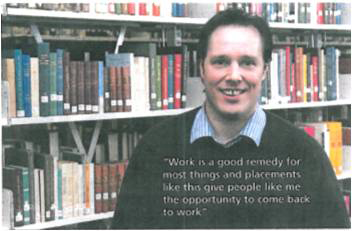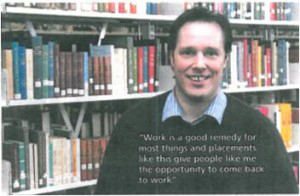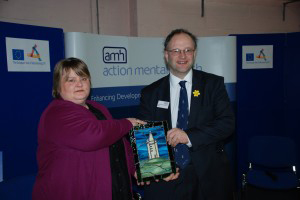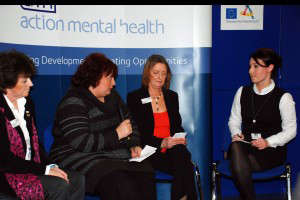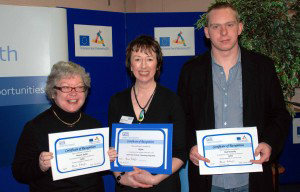MOPE, HOPE or COPE?
How Do You Cope With The Pressure of Exams?
 With the exam season fast approaching, AMH MensSana is offering young people and families support and tips on getting prepared and learning to recognise and deal with exam stress.
With the exam season fast approaching, AMH MensSana is offering young people and families support and tips on getting prepared and learning to recognise and deal with exam stress.
There can be a lot of pressure on you to do well in exams and this can often leave you feeling overwhelmed and stressed out. Sometimes the demands to do well at school can be brought on by yourself or it can be caused by people around you. Feeling anxious at such times is understandable, but some young people the pressure they feel can become too much to cope with. In this article, AMH MensSana will discuss some useful tips to help you overcome the feelings you may have about your exams.
When we feel stressed, scared or nervous our body responds by releasing stress hormones, including adrenaline and cortisol. These hormones cause increases in heart rate, muscle tightening, blood pressure and breath quickening. These physical changes increase your stamina and make you more alert preparing you to either fight or flee from the situation you face.
Experiencing these physical changes before and during an exam is normal and sometimes they can actually make us feel motivated to achieve, more alert, confident and enthusiastic. Stress, however, becomes a problem with it begins to make us feel tense, nervous, anxious, aggressive and panic-stricken. If severe or prolonged, stress can impair concentration and performance.
Symptoms of excessive stress include:
- Physical effects such as headaches, dizziness and stomach upset.
- Being preoccupied with thoughts of exams and feeling unable to relax.
- Becoming withdrawn from friends, family and hobbies.
- Constant tiredness due to problems sleeping.
- Loss of appetite of over-eating.
- Seeing only the negative side of things.
- Becoming more aggressive and short tempered with those around you
- Feeling so low and desperate that you are considering stopping school, running away or harming yourself.
If you can relate to any of these feelings, it is important to seek support as soon as possible. There are a number of services which AMH MensSana can sign-post you to that offer help and advice or you may find support from friends, family or someone at school – it doesn’t matter who, but it is important to speak to someone.
You can also help yourself to minimise the stress caused by exams:
- Develop a realistic revision timetable, making a list of the subjects/topics you have to cover and how long you have until your exam. Feeling prepared and organised for your exams can reduce stress. Your teacher should be able to help you with your revision timetable.
- During exam time it is important to manage your time properly. Try to keep a healthy balance between studying and other activities you enjoy. You may need to cut down on some of these in the run-up to the exam period but taking time out will help you to relax and can take your mind off revision.
- Long periods of continuous study can overload your brain, making it difficult to concentrate and be productive. Remember to build regular breaks into your revision schedule. Engaging in some form of physical activity during this time is a good way to reduce anxiety levels and help you relax.
- Try to go to bed at a regular time and ensure you get enough sleep, as this will aid your concentration and performance.
- Remember everyone revises differently. Try to find the revision routine that best suits you – compare how efficient you are at different times of the day and using different study methods.
- Ask for help from you teacher, parent/carer or a friend if there are things you don’t understand.
On the day of the exam:
- Have a good breakfast and drink water. Eating well and keeping hydrated can improve your concentration and also stop you feeling hungry in the middle of your exam.
- Check where your exam will be held and when it begins and leave enough time to get there. Getting lost and feeling rushed will only make you feel more anxious before your exam.
- Make sure you have all the equipment you need for each exam for example pens, pencils, calculator and ruler.
- If you are allowed, it is a good idea to bring a bottle of water and some tissues with you to your exam. Simple preparations like this help you to feel calm and in control.
- If you are feeling anxious before your exam try breathing slowly and deeply.
- When in your exam take time to read and re-read the questions thoroughly to ensure you do not overlook important information.
- Answer questions you are most confident about first as this is where you are likely to pick up the more marks.
- Try not to worry about what others are doing during the exam, this will only distract you.
- Avoid lengthy discussions with classmates about how they answered the questions as this can leave you felling worried and frustrated and try to put the exam behind you as quickly as possible.
- Remember to take time to relax and reward yourself after an exam by doing something you enjoy.
Young people will find stress much easier to deal with if they receive support from those around them. As a parent/guardian you can help and support a young person by:
- Trying to accommodate their needs by arranging a set time and place for them to study without being disturbed.
- Taking an interest in their study by offering encouragement and support – try not to criticise or place added pressure on them.
- Praising and encouraging their efforts and achievements can be motivating and demonstrates your support for them.
- Try to keep things in perspective and encourage them to do the same – remember that exam results are not the only indicator of a young person’s capabilities.
Getting you exam results can be a worrying time. It can seem like your future depends on what you get. Receiving disappointing results can feel like the end of the world, but it is important to remember that people’s strengths and weaknesses lie in different areas and not everyone performs at their best under exam conditions. The results you have received or the decisions you have made now, or in the past do not have to define what you do or who you are in the future. You have more options and opportunities to succeed in the future than you may think.
If you are finding the pressures of exams difficult to cope with, talk to someone about how you are feeling. Asking for help can be difficult – maybe you are worried about what others will think of you. Many people, however, will be able to relate to what you are going through and may offer suggestions that you would not have thought of yourself. You could speak to your teachers and they should be able to help you plan your revision and feel better about what you have to do. It is also a good idea to talk to your friends and family about your feelings as they can help support you while you are feeling worried.
Asking for help is a good thing to do, but can be scary. You may prefer to speak to someone you don’t know, like a counsellor, who is specially trained to help people in exactly your situation. Your GP can put you in touch with services like this and may also prescribe medication, if appropriate, to reduce your feelings of stress and anxiety.
For further information on local organisations and sources of support, contact AMH MensSana on 02838392314 or check out their website www.menssanaproject.org.uk
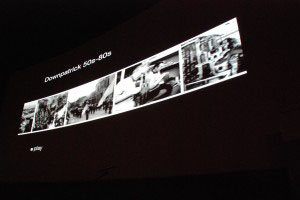 The Eclipse Cinema in Downpatrick will be showing a double bill of locally made films on Monday 6th June 2011 at 7.30pm.
The Eclipse Cinema in Downpatrick will be showing a double bill of locally made films on Monday 6th June 2011 at 7.30pm. 





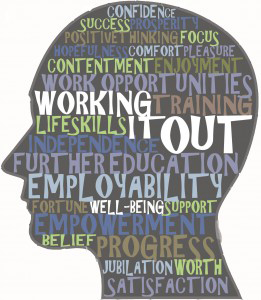 When most people think about “health” they conjure up images that are related to physical health. Physical health is anything that has to do with our bodies; it has been the basis for numerous active and healthy eating campaigns. It is surprising therefore that the importance of our mental health continues to be relatively overlooked. Mental Health is something that we all have to look after; it is not just relevant to those who are affected by mental ill health. Mental Health is something that we all have to look after; it is not just relevant to those who are affected by mental ill health. Mental health related to our thoughts, feelings and beliefs about ourselves and the world around us. Aspects of positive mental health include feeling good about ourselves and others, having the resilience to cope with life’s ups and downs and feeling able to make a contribution to the society in which we live.
When most people think about “health” they conjure up images that are related to physical health. Physical health is anything that has to do with our bodies; it has been the basis for numerous active and healthy eating campaigns. It is surprising therefore that the importance of our mental health continues to be relatively overlooked. Mental Health is something that we all have to look after; it is not just relevant to those who are affected by mental ill health. Mental Health is something that we all have to look after; it is not just relevant to those who are affected by mental ill health. Mental health related to our thoughts, feelings and beliefs about ourselves and the world around us. Aspects of positive mental health include feeling good about ourselves and others, having the resilience to cope with life’s ups and downs and feeling able to make a contribution to the society in which we live. With the exam season fast approaching, AMH MensSana is offering young people and families support and tips on getting prepared and learning to recognise and deal with exam stress.
With the exam season fast approaching, AMH MensSana is offering young people and families support and tips on getting prepared and learning to recognise and deal with exam stress.
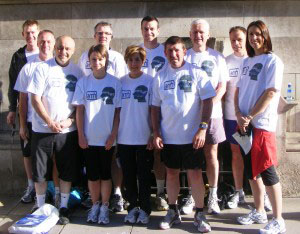



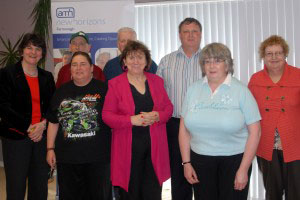 AMH New Horizons in Fermanagh welcomed Arlene Foster, Minister for Enterprise, Trade and Investment to their unit in Drumcoo yesterday. Arlene is also running for re-election in Fermanagh and South Tyrone in the 5th May Assembly elections. The Minister had a chance to meet with people in her consituency who are living with mental illness and find out more about the services available at AMH which are helping clients on the road to recovery and a better future. Arlene enjoyed seeing around the unit, hearing about the courses on offer, and the difference AMH is making to peoples’ lives. The visit ended with lunch, which was prepared by clients who are training for catering qualifications.
AMH New Horizons in Fermanagh welcomed Arlene Foster, Minister for Enterprise, Trade and Investment to their unit in Drumcoo yesterday. Arlene is also running for re-election in Fermanagh and South Tyrone in the 5th May Assembly elections. The Minister had a chance to meet with people in her consituency who are living with mental illness and find out more about the services available at AMH which are helping clients on the road to recovery and a better future. Arlene enjoyed seeing around the unit, hearing about the courses on offer, and the difference AMH is making to peoples’ lives. The visit ended with lunch, which was prepared by clients who are training for catering qualifications.